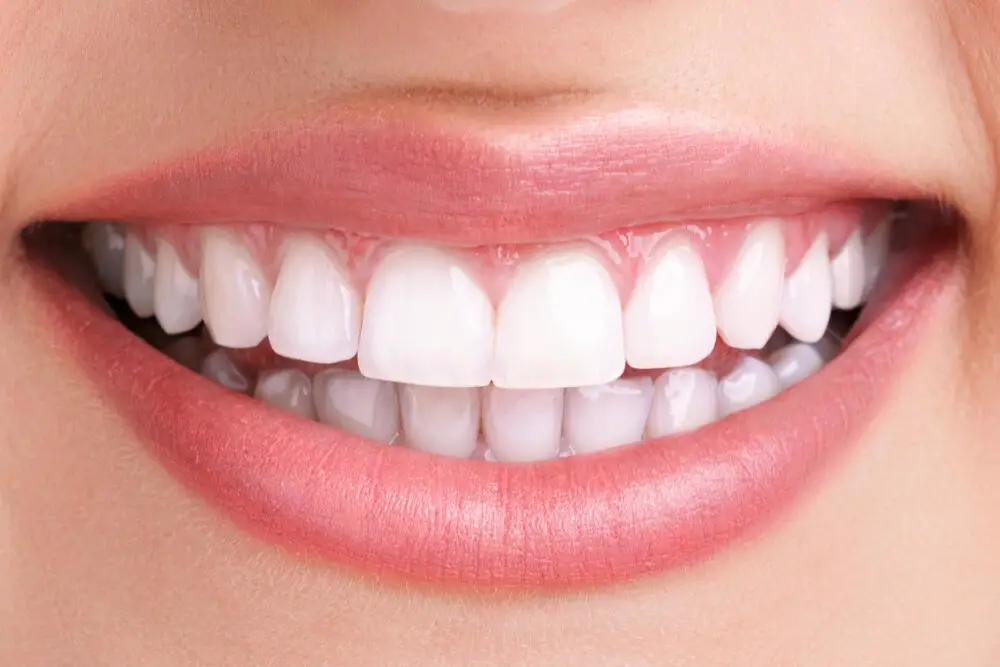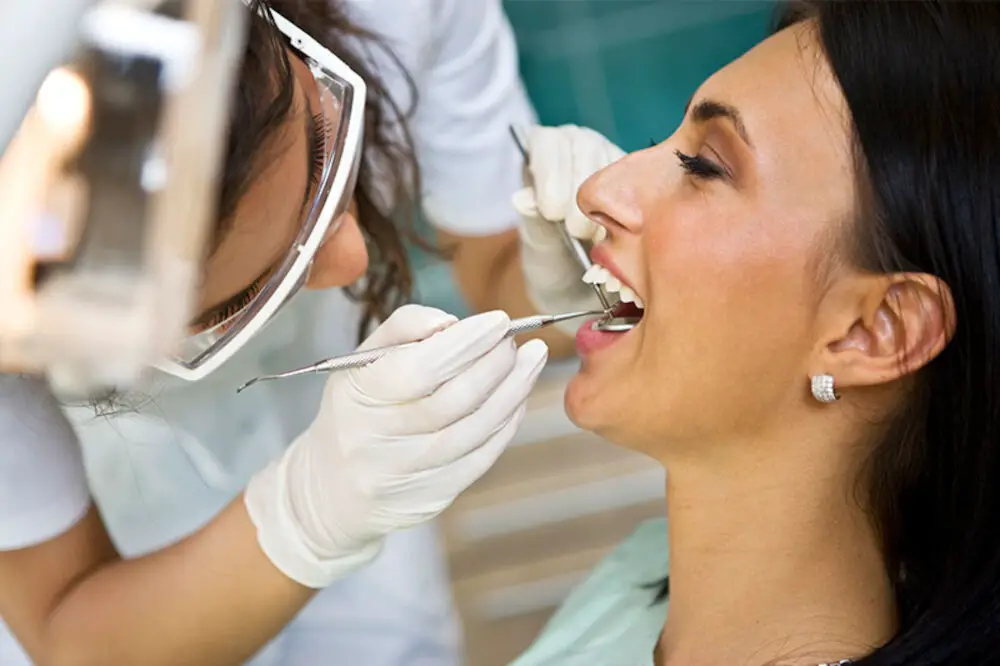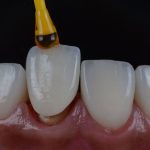Why Sugar Hurts Your Teeth: Exploring the Causes and Solutions

Sugar is a ubiquitous ingredient in our modern diet, found in everything from breakfast cereals to soft drinks. While it may be delicious and satisfying, sugar is also a major contributor to tooth decay and other dental problems. In fact, the World Health Organization has identified tooth decay as the most prevalent chronic disease in the world, affecting billions of people. In this article, we will explore the causes of tooth decay and how sugar plays a role in this process. We will also discuss solutions to help prevent tooth decay and improve your overall dental health. Tooth decay is a complex process that involves a number of factors, including the presence of bacteria in the mouth, the type and frequency of food and drink consumed, and the quality of oral hygiene. When sugar is consumed, it provides a food source for the bacteria in the mouth. These bacteria produce acid as a byproduct of their metabolism, and it is this acid that leads to the demineralization of tooth enamel. Over time, this process can lead to cavities, gum disease, and other serious dental problems. However, sugar is not the only culprit in tooth decay. Poor oral hygiene, a lack of fluoride, and genetics can all play a role in the development of dental problems.
Tooth decay, also known as dental caries, is a common dental problem that occurs when the bacteria in the mouth produce acid that erodes the enamel and dentin layers of the teeth. This process leads to the formation of cavities, which can cause pain, sensitivity, and even tooth loss if left untreated. The link between sugar and tooth decay is well-established, as the bacteria in the mouth feed on the sugars and fermentable carbohydrates found in foods and drinks, producing the acid that attacks the teeth. Frequent consumption of sugary foods and drinks and poor oral hygiene habits can increase the risk of tooth decay, making it crucial to limit sugar intake and maintain good dental hygiene practices.
Understanding the causes and solutions of tooth decay is crucial in maintaining optimal oral health. Tooth decay is a widespread problem caused by the breakdown of tooth enamel due to acids produced by bacteria in the mouth. The primary cause of tooth decay is poor oral hygiene, including inadequate brushing and flossing, and a diet high in sugar and carbohydrates. Failure to address tooth decay can result in painful cavities, gum disease, and even tooth loss. However, there are solutions to prevent tooth decay, including regular dental checkups, a balanced diet, and good oral hygiene practices such as brushing and flossing. By understanding the causes and solutions of tooth decay, individuals can take appropriate steps to maintain healthy teeth and gums and prevent future dental problems.
The article \Why Sugar Hurts Your Teeth: Exploring the Causes and Solutions\ delves into the detrimental effects of sugar on oral health. The article highlights the role of bacteria in the mouth that feed on sugar and produce acid, which erodes the enamel and dentin of the teeth. The article also explains the difference between natural and added sugar and their effects on dental health. Furthermore, the article explores various solutions to combat the adverse effects of sugar on teeth, including maintaining good oral hygiene, limiting sugar intake, and consuming foods that promote dental health. Overall, the article serves as an informative guide for individuals looking to protect their oral health and prevent tooth decay.
The Science Behind Tooth Decay

Tooth decay is a widespread oral health issue affecting people of all ages. Understanding the science behind tooth decay can help you take better care of your teeth and prevent the development of cavities. Tooth decay occurs when acid-producing bacteria in your mouth feed on the sugar and carbohydrates in your food and produce acid. The acid then attacks your tooth enamel, causing it to weaken and break down over time. This process is known as demineralization, and it can lead to the formation of cavities in your teeth. Several factors can contribute to tooth decay, including poor oral hygiene, a diet high in sugar and carbohydrates, and a lack of fluoride. Brushing and flossing regularly can help remove plaque, food particles, and bacteria from your teeth, reducing the risk of tooth decay. A balanced diet that’s low in sugar and high in calcium and vitamin D can also promote healthy teeth and gums. Additionally, drinking water that contains fluoride can help strengthen your tooth enamel and reduce your risk of cavities. Understanding the science behind tooth decay can help you make informed decisions about your oral health and take the necessary steps to prevent cavities and other dental problems.
Tooth decay is a gradual process that occurs when the bacteria in the mouth break down the sugar and carbohydrates in the food we eat, producing acid that erodes the enamel on our teeth. Over time, this acid can penetrate deeper into the tooth, causing cavities and eventually, tooth decay. Poor oral hygiene and a diet high in sugary and acidic foods can worsen the development of tooth decay. In addition, certain medical conditions, such as dry mouth or acid reflux, can also contribute to the erosion of tooth enamel. It is important to practice good dental hygiene, limit sugary and acidic foods, and visit the dentist regularly to prevent and treat tooth decay.
Tooth decay is a widespread oral health problem caused by the interaction of bacteria and acid in the mouth. The bacteria in our mouths feed on sugar and produce acid as a byproduct. This acid attacks the enamel, the hard outer layer of our teeth, eroding it over time. If left untreated, the acid can reach the inner layers of the tooth, causing cavities and even tooth loss. The role of bacteria in tooth decay is crucial, as they create a conducive environment for acid production. To prevent tooth decay, it’s essential to maintain good oral hygiene, limit sugar intake, and visit a dentist regularly.
Saliva plays a crucial role in preventing tooth decay by neutralizing acids produced by bacteria in the mouth. It also helps to rinse away food particles and bacteria that can stick to teeth and cause decay. Saliva is rich in minerals such as calcium and phosphate, which can help to repair and remineralize teeth that have already begun to decay. Additionally, saliva contains enzymes that help to break down food and protect against harmful bacteria. When there is not enough saliva in the mouth, or it is too acidic, it can lead to a higher risk of tooth decay. Therefore, maintaining good oral hygiene and staying hydrated can help to ensure that the mouth produces enough saliva to protect against tooth decay.
The Relationship Between Sugar and Tooth Decay

Sugar and tooth decay have a well-established relationship. When we eat sugary foods, the bacteria in our mouth break down the sugars and produce acid. This acid attacks our tooth enamel and can cause cavities. The longer the sugar stays in our mouth, the more damage it can do. This is why it’s important to brush and floss regularly to remove food particles and sugars from our teeth. Additionally, limiting our sugar intake can help prevent tooth decay and promote overall oral health. It’s not just the amount of sugar we consume that matters, but also the frequency with which we consume it. Snacking on sugary foods and drinks throughout the day can create a constant supply of sugar for the bacteria in our mouth, leading to more acid production and a higher risk of tooth decay. Choosing sugar-free options or limiting sugary snacks to mealtimes can help reduce this risk. Ultimately, taking steps to limit our sugar intake and maintain good oral hygiene habits can go a long way in preventing tooth decay and promoting a healthy smile.
When it comes to harming teeth, not all sugars are created equal. The two main types of sugar that are most harmful to teeth are sucrose and fructose. Sucrose, also known as table sugar, is found in many processed foods and drinks, such as candy, soda, and baked goods. When sucrose is consumed, it feeds the bacteria in our mouths, which then produce acid that erodes tooth enamel. Fructose, on the other hand, is found naturally in fruits and vegetables, but is also added to many processed foods and drinks as high-fructose corn syrup. Like sucrose, fructose can also lead to acid production in the mouth and tooth decay. Overall, consuming excessive amounts of sugar, especially sucrose and fructose, can have a negative impact on dental health.
The frequency and amount of sugar consumption play a significant role in causing tooth decay. Tooth decay is caused by the bacteria present in the mouth that feed on sugary foods and produce acid that erodes the enamel of teeth. The more often one eats sugary foods and drinks, the more frequently the bacteria produce acid, leading to a higher risk of tooth decay. The amount of sugar consumed also matters since larger amounts of sugar provide more food for the bacteria, resulting in more acid production. Therefore, reducing the frequency and amount of sugar consumption is crucial in preventing tooth decay and maintaining good oral health.
Consuming sugary drinks and snacks can have a detrimental effect on our teeth. The high sugar content in these products can cause the bacteria in our mouths to produce acids that attack the enamel, the outer layer of our teeth. Over time, this can lead to tooth decay and cavities. Additionally, sugary drinks like soda and fruit juices are often acidic, which can further erode the enamel and cause sensitivity. It is important to practice good oral hygiene, limit the consumption of sugary foods and drinks, and visit the dentist regularly to prevent and treat any dental issues that may arise.
Preventing Tooth Decay

Tooth decay is a common dental issue that can be prevented with proper oral hygiene and healthy habits. The primary cause of tooth decay is sugar, which feeds bacteria in the mouth and produces acid that erodes tooth enamel. Therefore, one of the best ways to prevent tooth decay is to limit consumption of sugary foods and drinks. Instead, opt for whole foods such as fruits, vegetables, and whole grains that provide essential nutrients for dental health. Drinking plenty of water can also help flush out harmful bacteria and neutralize acid in the mouth. Another crucial step in preventing tooth decay is maintaining good oral hygiene. This includes brushing teeth at least twice a day with fluoride toothpaste and flossing daily to remove plaque and food particles from between teeth. Regular dental checkups and cleanings can also help identify and address dental issues before they become more severe. In addition, using mouthwash can help reduce bacteria in the mouth and freshen breath. By taking these simple steps to prevent tooth decay, individuals can maintain healthy teeth and gums for a lifetime.
The significance of good oral hygiene practices cannot be overstated, especially when it comes to maintaining healthy teeth and gums. Neglecting oral hygiene can lead to various dental problems, including cavities, gum disease, and tooth loss. Poor oral hygiene can also cause bad breath, which can be socially debilitating. Brushing teeth twice a day, flossing regularly, and using mouthwash can help eliminate harmful bacteria that cause tooth decay and gum disease. Moreover, reducing sugar intake can also play a vital role in maintaining good oral health. By understanding the causes and solutions of dental problems, individuals can take proactive measures to improve their oral hygiene practices and safeguard their oral health.
Fluoride plays an essential role in preventing tooth decay by strengthening the enamel, the protective outer layer of teeth. It works by remineralizing the enamel and making it more resistant to acid attacks from bacteria in plaque. Fluoride can be found in toothpaste, mouthwash, and even some drinking water sources. Regular use of fluoride products can help reduce the risk of cavities and promote overall oral health. However, it’s important to use fluoride products in moderation, as excessive fluoride intake can lead to dental fluorosis, a condition that causes white spots and discoloration on teeth.
Reducing sugar consumption is key to preventing tooth decay. This can be achieved by making simple changes in your diet, such as avoiding sugary drinks and snacks, and opting for healthier alternatives like water, fruits, and vegetables. It’s also important to read food labels carefully and choose foods that are low in added sugars. Another helpful tip is to limit snacking between meals, as this can lead to prolonged exposure of your teeth to sugary foods. Finally, regular brushing and flossing, as well as routine dental check-ups, can help keep your teeth healthy and prevent decay. By being mindful of your sugar intake and taking steps to reduce it, you can protect your teeth and maintain a healthy smile.
Treating Tooth Decay

Tooth decay is a common dental problem that can cause pain, sensitivity, and even tooth loss. Fortunately, there are several effective treatments available to help restore damaged teeth and prevent further decay. The most common treatment for tooth decay is a dental filling, which involves removing the decayed portion of the tooth and filling the cavity with a tooth-colored resin or other material. Fillings are a quick and relatively painless procedure that can be completed in just one visit to the dentist. For more severe cases of tooth decay, a dental crown may be necessary. A crown is a type of cap that is placed over the entire tooth to protect it from further damage and restore its strength and function. In some cases, a root canal may be necessary to remove the infected pulp inside the tooth and prevent the decay from spreading to other teeth. While these treatments can be more involved and require multiple appointments, they are highly effective at restoring damaged teeth and preventing further decay. Additionally, practicing good oral hygiene habits, such as brushing twice daily and flossing regularly, and avoiding sugary and acidic foods and drinks can help prevent tooth decay from occurring in the first place.
Tooth decay is a common dental problem that can cause pain and discomfort. Fortunately, there are several treatment options available. The most common treatment for tooth decay is a filling. This involves removing the decayed portion of the tooth and filling the cavity with a dental material such as composite resin, amalgam, or porcelain. If the decay has reached the pulp of the tooth, a root canal may be necessary. During a root canal, the pulp and nerve of the tooth are removed and replaced with a filling material. In severe cases, extraction may be necessary. It is important to address tooth decay promptly to prevent further damage and potential tooth loss.
Early detection and treatment are crucial when it comes to maintaining good oral health. In the case of sugar, it is particularly important because sugar is a major contributing factor to tooth decay. The sooner you are able to detect the signs of tooth decay, the better your chances of preventing further damage to your teeth. This is why regular visits to the dentist are so important. A dentist can identify any problems early on and recommend treatment options that will help to preserve your oral health. In addition, if you are experiencing any symptoms such as tooth pain or sensitivity, it is important to seek treatment as soon as possible. Ignoring these symptoms can lead to more serious problems down the road, and may even result in the loss of a tooth. So, be proactive in your oral health and don’t wait until it’s too late to seek treatment.
Tooth decay is a common problem that affects people of all ages. Fortunately, there are several ways you can prevent tooth decay from getting worse. One effective method is to limit your intake of sugary and acidic foods and drinks, as these can erode tooth enamel and create an environment that encourages bacteria growth. It’s also important to maintain good oral hygiene habits, such as brushing your teeth twice a day with fluoride toothpaste and flossing daily. Regular dental checkups and cleanings can also help catch and treat tooth decay early, before it becomes a more serious problem. Additionally, using a fluoride mouthwash and drinking plenty of water can help strengthen teeth and rinse away harmful bacteria. By taking these preventative measures, you can keep your teeth healthy and strong for years to come.
Tooth decay is the result of an imbalance between the bacteria in our mouth and our body’s natural defenses. When we consume sugary or starchy foods, the bacteria in our mouth feed on these carbohydrates, producing acid that erodes the enamel on our teeth. This process is exacerbated by poor oral hygiene, which allows bacteria to accumulate and multiply. The best solution for preventing tooth decay is to maintain good oral hygiene habits, such as brushing and flossing regularly, and reducing our intake of sugary and starchy foods. Additionally, consuming foods that are rich in calcium and vitamin D can help strengthen our teeth and bones, while fluoride treatments can help protect against tooth decay.
Taking care of your teeth is crucial to preventing tooth decay, a common problem that can cause discomfort, pain, and even tooth loss. Tooth decay occurs when the bacteria in your mouth feed on the sugar and produce acid that erodes the enamel of your teeth. Brushing and flossing regularly can remove the bacteria and prevent the buildup of plaque, which is a sticky film that can also contribute to tooth decay. In addition, reducing your intake of sugary foods and drinks can help limit the amount of sugar available for the bacteria to feed on. Practicing good oral hygiene and making healthy dietary choices can go a long way in protecting your teeth and maintaining good overall health.
Taking care of your teeth and overall health is crucial in leading a healthy lifestyle. Making healthy choices with your diet can go a long way in preventing tooth decay and other oral health issues. Reducing your intake of sugary foods and drinks can help protect your teeth and gums. Instead, opt for foods that are high in calcium and nutrients, like leafy greens, dairy products, and lean proteins. Additionally, maintaining good oral hygiene habits, such as brushing twice a day and flossing regularly, can prevent bacteria buildup and promote healthy teeth and gums. By making conscious choices and taking preventative measures, you can improve your overall health and enjoy a brighter, healthier smile.
Conclusion

In conclusion, the negative impact of sugar on our teeth is a well-known fact, and the causes and solutions for this problem have been explored extensively. The consumption of sugary foods and drinks can lead to the formation of plaque, which can cause tooth decay and cavities over time. However, there are several ways to combat this issue, such as reducing sugar intake, practicing good oral hygiene, and visiting the dentist regularly. It is crucial to take this matter seriously and make conscious efforts to protect our teeth from the harmful effects of sugar. By doing so, we can ensure that our smiles remain healthy and beautiful for years to come.







